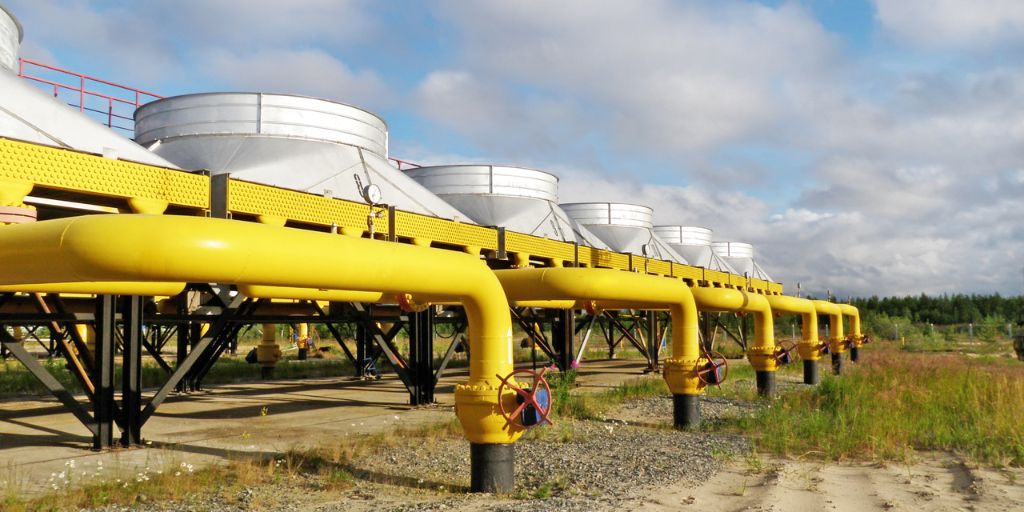This year’s COP29 United Nations Climate Change Conference in Baku never looked like a serious attempt to tackle the global climate emergency. After all, its hosts plan to increase oil and gas production by a third over the next decade – hardly a sign of climate leadership.
Pippa Gallop, Southeast Europe Energy Policy Officer | 22 November 2024

Azerbaijan’s fossil fuel industry profited from its role even before the conference began. The contracts signed by state oil and gas company SOCAR in the last 12 months are worth close to three times more than contracts sealed in the preceding period. A senior COP29 official was even secretly filmed using his role to arrange a meeting to discuss more deals.
Several Western Balkan governments are among those eager to access Azerbaijan’s fossil gas resources. Instead of using COP29 to make new commitments to phase out the region’s choking old coal power plants and speed up their energy transitions, they’ve been willing accomplices to the Azerbaijan government’s abuse of the climate emergency.
The Albanian government has used the event to sign a memorandum of understanding with SOCAR for the construction of a gas distribution system in the southern city of Korçë. A country largely dependent on hydropower for electricity, Albania is likely the only country in Europe planning to transition *to* fossil fuels instead of away from them.
Serbia’s President Vučić and his Azerbaijani counterpart Aliyev also met at COP29 and discussed building a joint gas power plant, including gas supply – either a one gigawatt facility in Niš, the country’s third-largest city, or two of 350 megawatts each.
And North Macedonia’s ESM power utility and SOCAR also signed a memorandum to access Azerbaijan’s gas, though details of the deal are scant.
It has been clear for years already that no more fossil fuel infrastructure can be built if we are to stand any chance of limiting climate chaos to survivable limits. If decarbonisation of all sectors is to take place by 2050 at the very latest, it is too late to start locking in new fossil fuel pipelines and power plants now.
And gasification in the Western Balkans makes no economic or political sense. The region has lower gas dependence than the EU. Serbia and North Macedonia use gas e.g. for district heating, but still not as much as EU countries, while Bosnia and Herzegovina mainly uses it to heat Sarajevo. Albania, Montenegro and Kosovo are gas-free as they are not connected to international gas networks, despite the Trans-Adriatic Pipeline running through Albania.
This low dependence on fossil gas is an advantage to maximise. If the last four years have taught us anything, it is that dependence on imported fuels is a mistake. But this lesson doesn’t seem to be getting through to Western Balkan governments, with the exception of Kosovo, which has wisely decided against building a gas supply pipeline.
In principle, the European Commission could play a key role in preventing more fossil fuel lock-in, explaining to decision makers in the region what decarbonisation at the latest by 2050 really entails, and leading by example.
The problem is, it’s spent years sending mixed messages. Despite strong growth of wind, solar and heat pumps, the EU is struggling to overcome its own gas addiction. Progress has been made with consumption decreasing since 2022, but it has courted Azerbaijan for additional supplies, despite the country’s appalling human rights record.
EU funds channelled through the Western Balkans Investment Framework (WBIF) have supported solar, wind and energy efficiency, but they’ve also financed studies encouraging gasification in Albania and Kosovo and increased gas use in North Macedonia and Bosnia and Herzegovina. They’ve also funded the construction of a pipeline from Bulgaria to Serbia and a planned one from Greece to North Macedonia. Even now, after the recent gas crises, studies on a new pipeline from North Macedonia to Serbia are still under preparation with EU support.
The European Commission has too often shown political support for gas. Among others, outgoing Neighbourhood and Enlargement Commissioner, Olivér Várhelyi, featured it in the EU’s Economic and Enlargement Plan for the region as well as pledging to help Montenegro build a liquified gas (LNG) terminal.
This has cost considerable time and money that should have been spent on sustainable power and heat solutions such as insulation, heat pumps, geothermal, solar and wind.
But with new Enlargement Commissioner Marta Kos set to take office soon, it’s a key moment for the EU to clarify its messages towards the Western Balkans.
There have been signs of hope, with the Trans-European Network for Energy Regulation and the new Reform and Growth Facility ruling out financing for fossil fuels. But the Commission needs to unequivocally reject further support for gas infrastructure in the region and step up its support for an energy efficient, 100 per cent renewable future.
Never miss an update
We expose the risks of international public finance and bring critical updates from the ground – straight to your inbox.
